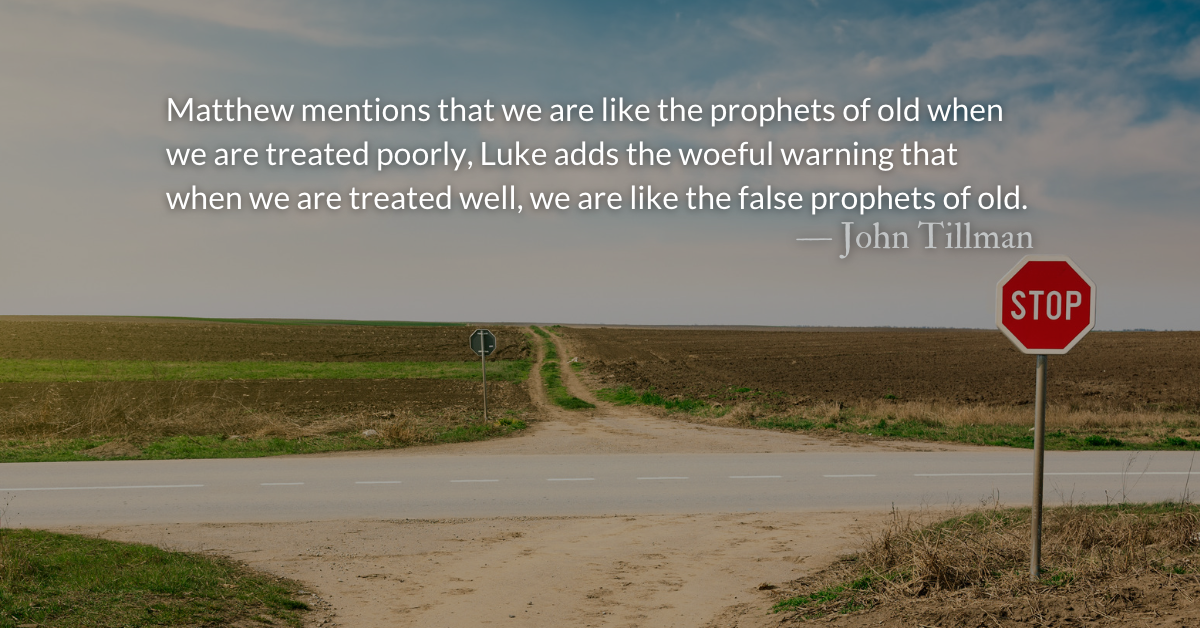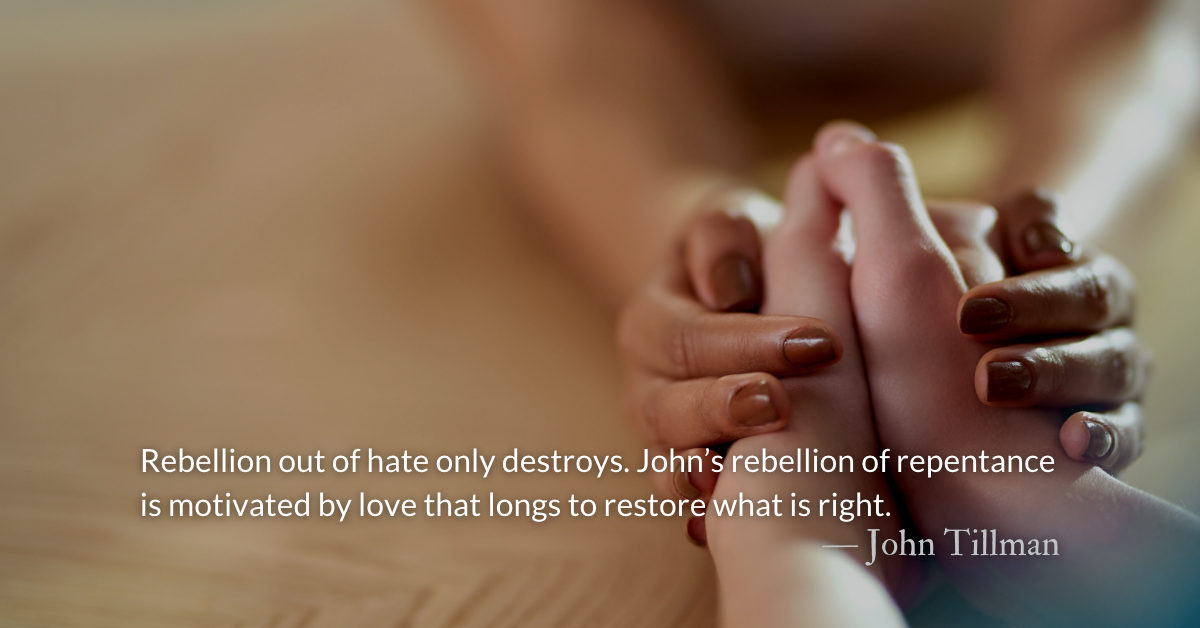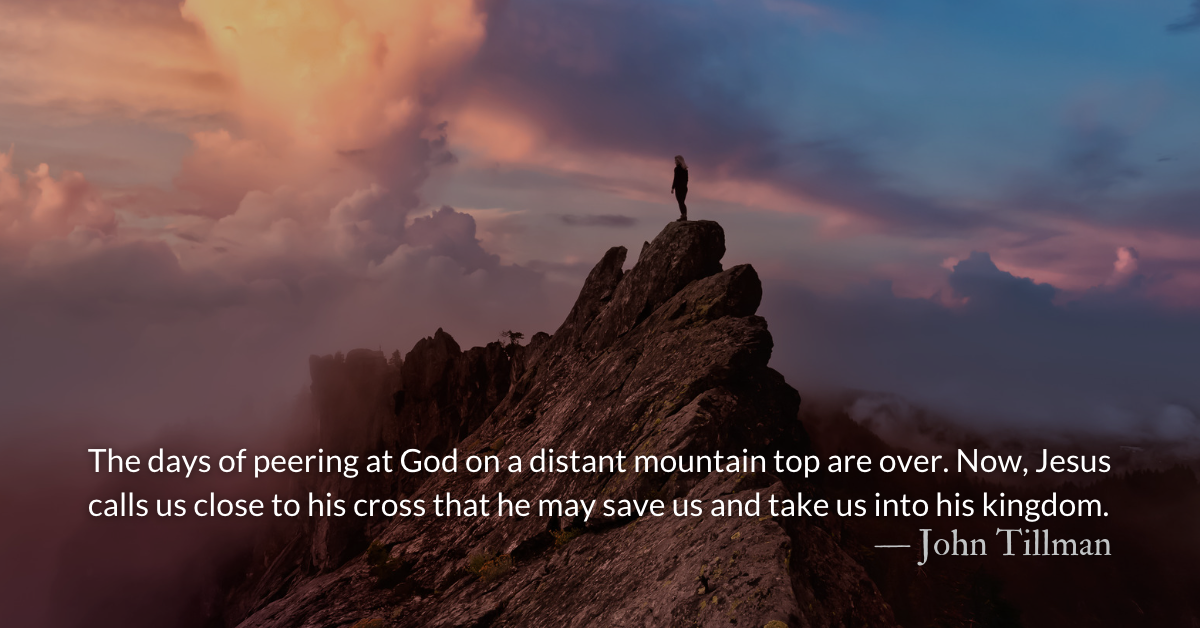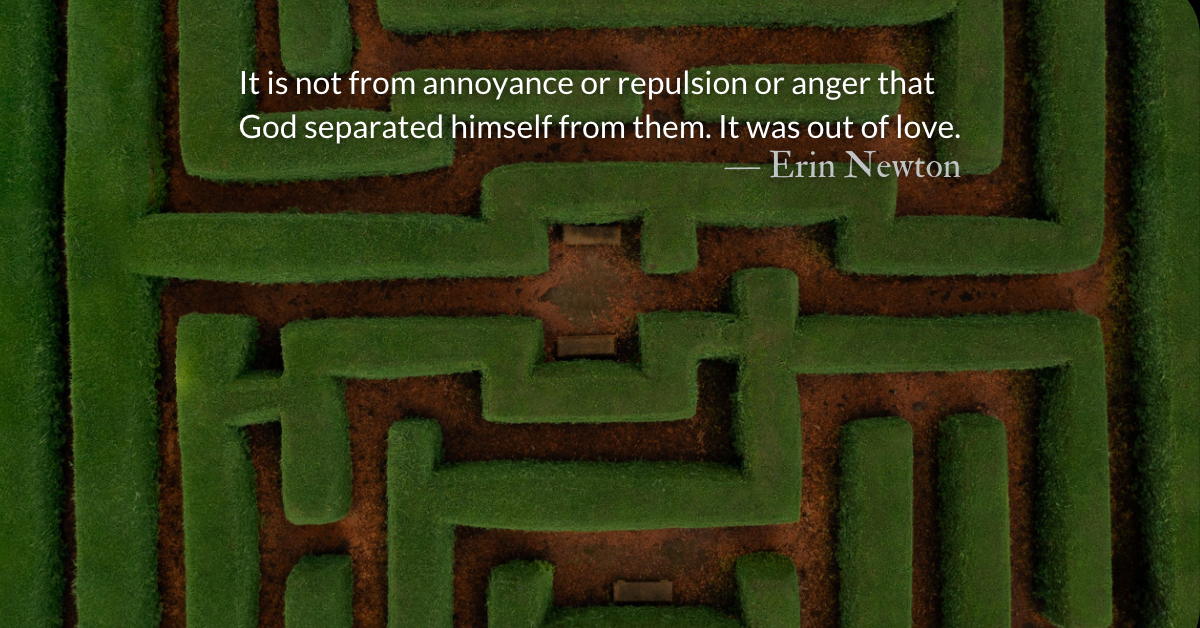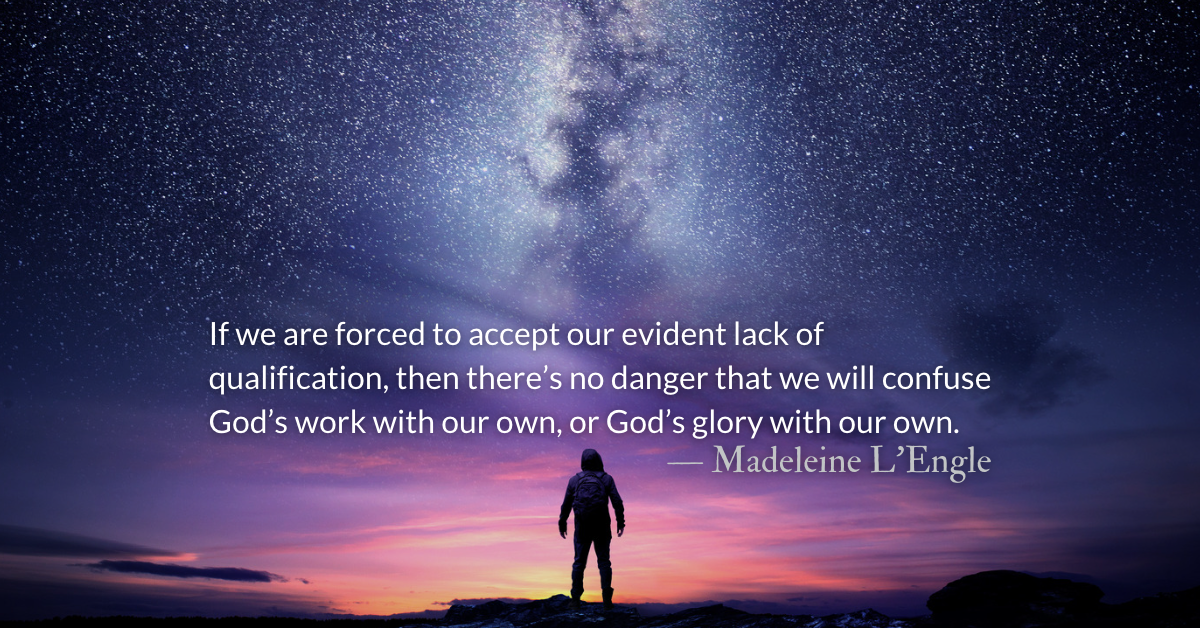Scripture Focus: Luke 6.24-26
24 “But woe to you who are rich,
for you have already received your comfort.
25 Woe to you who are well fed now,
for you will go hungry.
Woe to you who laugh now,
for you will mourn and weep.
26 Woe to you when everyone speaks well of you,
for that is how their ancestors treated the false prophets.
Reflection: Blessing and Woes — A Guided Prayer
By John Tillman
Luke’s Beatitudes strike a sharper tone than Matthew’s because Luke pairs them with a mirrored set of woes. Where Matthew mentions that we are like the prophets of old when we are treated poorly, Luke adds the woeful warning that when we are treated well, we are like the false prophets of old.
Pray Luke’s Beatitudes through the rest of this week. Hear God speaking to you in both parts of the prayer.
A Prayer of Blessings and Woes
Lord help us press onward through the blessing of being poor, of being hungry, of weeping, of being hated, excluded, insulted, and rejected. There is blessing in the pain of the journey and surpassing joy on the other side.
Blessed are you who are poor,
for yours is the kingdom of God.
Blessed are you who hunger now,
for you will be satisfied.
Blessed are you who weep now,
for you will laugh.
Blessed are you when people hate you,
when they exclude you and insult you
and reject your name as evil,
because of the Son of Man.
Rejoice in that day and leap for joy, because great is your reward in heaven. For that is how their ancestors treated the prophets.
May we take heed of the woes we are subject to. May we not deny that we are rich, that we are comfortable, that we are well-fed, that we laugh, and are spoken well of. There is comfort now in acclaim and acceptance, but there is woe and destruction if we turn away from the path of Christ.
But woe to you who are rich,
for you have already received your comfort.
Woe to you who are well fed now,
for you will go hungry.
Woe to you who laugh now,
for you will mourn and weep.
Woe to you when everyone speaks well of you,
for that is how their ancestors treated the false prophets.
Divine Hours Prayer: The Refrain for the Morning Lessons
“Because the needy are oppressed, and the poor cry out in misery, I will rise up,” says the Lord, “And give them the help they long for.” — Psalm 12.5
– From The Divine Hours: Prayers for Springtime by Phyllis Tickle.
Today’s Reading
Exodus 24 (Listen 2:48)
Luke 6 (Listen 6:46)
Read more about Seeing God in the Wilderness
Christ extends his hand, inviting us to a joy-filled city, in which the God of creation waits to dine with us.
Read more about Woken by Woe
Amos, Jesus, and other prophets employ the ominous tone of, “woe” to get the attention of their audiences.

